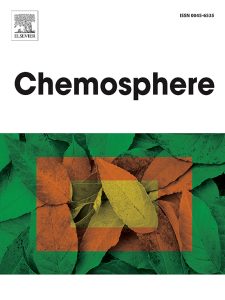An Elsevier chemistry journal has marked more than 60 papers with expressions of concern amid an investigation involving potential undisclosed conflicts of interest among editors, authorship irregularities and manipulation of peer reviews and citations.
One of the notices, published online April 11 in Chemosphere, reads, for example:
Concerns have been brought to the attention of the journal regarding:
- unusual changes to the authorship of the article prior to publication.
- potential undisclosed conflicts of interest by a reviewer.
- potential undisclosed conflicts of interest by the editor who handled the peer-review process for the article.
The journal editors are investigating the article, including contacting the authors, in line with Committee on Publication Ethics (COPE) guidelines and Elsevier’s policies.
The Expression of Concern will remain appended to the article until the investigation has been completed. If the editors can reach a conclusion, they will take any action that is deemed necessary. If the editors have determined that they cannot reach a satisfactory conclusion with the information available to them, a further notification will be published to update the community.
The publisher would not share further details about its efforts, telling us only:
Our Research Integrity & Publishing Ethics team is investigating a series of articles published in Chemosphere. In line with our Article Correction, Retraction & Removal Policy, we have published temporary Expressions of Concern against a series of papers where investigations are ongoing and may take considerable time to conclude (https://www.elsevier.com/about/policies-and-standards/article-withdrawal#3-expressions-of-concern). We will update the community on the outcome of the investigations in due course with further notices.
Sleuths have flagged dozens of publications in Chemosphere. In December, for instance, an anonymous PubPeer comment listed several papers that were “part of a potential breach in the publication ethics as the editor is linked with the authors.” In other cases, the handling editor was also an author of the paper, another post pointed out.
The notices started to appear online in March. Papers in both special and regular issues of the journal seem to be affected.
Like Retraction Watch? You can make a tax-deductible contribution to support our work, subscribe to our free daily digest or paid weekly update, follow us on Twitter, like us on Facebook, or add us to your RSS reader. If you find a retraction that’s not in The Retraction Watch Database, you can let us know here. For comments or feedback, email us at [email protected].

They conduct/approve the review process
They Accept the paper
They received the APC Fee
They approve the proofread
They publish the paper..
And now, they pretend to be shocked because of misconduct??
And now, they will retract the paper?
Who should blame? Author or publisher?
I think all fault is on the publisher. The decide to accept and publish the paper.. The author just submit the paper and its depend on publisher decision..
Why does LOGIC not apply in academic publishing??
1 more,
We did research, we got new findings, and we submitted our paper for publication, but we did not receive a royalty for our work findings. We pay them to publish our paper? they receive profit from our works??? Where is the LOGIC??
This is the perpetual mystery. But as long as publication still serves as a currency in the academia, it would be researchers begging for journals to publish their study, not the other way around. Such power dynamics ensures the publishers’ greedy and illogical modus operandi.
The logic is definitely not in your comment, as any misconduct is not the publisher’s fault. You would not blame the shop owner if he accepts money from a customer that later turns out to be counterfeit, and in the process exonerate the customer even if he is the one who made that fake money – or would you?
You could argue that the shop owner should have better controls in place, but putting the blame fully and squarely on the shop owner is silly.
Unless the shop owner is also the customer!
“They received the APC Fee”
There are no APCs. Chemosphere is a subscription journal.
$3760
Article publishing charge
for open access
I have not checked all the papers in question, but all the ones I did check are paywalled.
Academia is broken, from bottom to top everything is compromised.
See also https://forbetterscience.com/2024/05/14/do-papermillers-dream-of-eclectic-journals/.
63 papers with Expressions of Concern at this point – indexed here: https://www.psiref.com/publications/194582528 for this RW article.
We should expect this number to be just the tip of the iceberg – many of the papers with EoC notices are tagged on PubPeer by our friendly neighborhood sleuth Hoya Camphorina. But in addition, Desmococcus Antarctica, Guillaume Cabernac and Alexander Magazinov have also done some serious legwork in this particular zip-code – with *several hundred* more papers in Chemoshere that are tagged in PubPeer and indexed here under the “Retractions, Expressions of Concern and External Notices” tab @
https://www.psiref.com/periodicals/12526185/chemosphere
At the end of the day, all you have is your reputation. It should be fiercely guarded. Whether you are a journal, publisher or author, as a stakeholder in the academic publishing process you should realize that the progress of detection technologies and the efforts of crowd sourcing communities such as this one will inevitably catch up to those taking these shortcuts for short-term personal gains. And platforms like PSIref will be there to silently record and publicly report your actions for anyone to see – your community, your students, your faculty, your family, your readership, your colleagues, your employer, etc. This could very likely haunt you in perpetuity. Maybe you disagree, then bygones – but we wish you “good luck” in that next job interview! /end soapbox
“And platforms like PSIref”
Oh, a nice resource!
A year later and nothing much happened to the papers! So far for the cleanup in this journal.